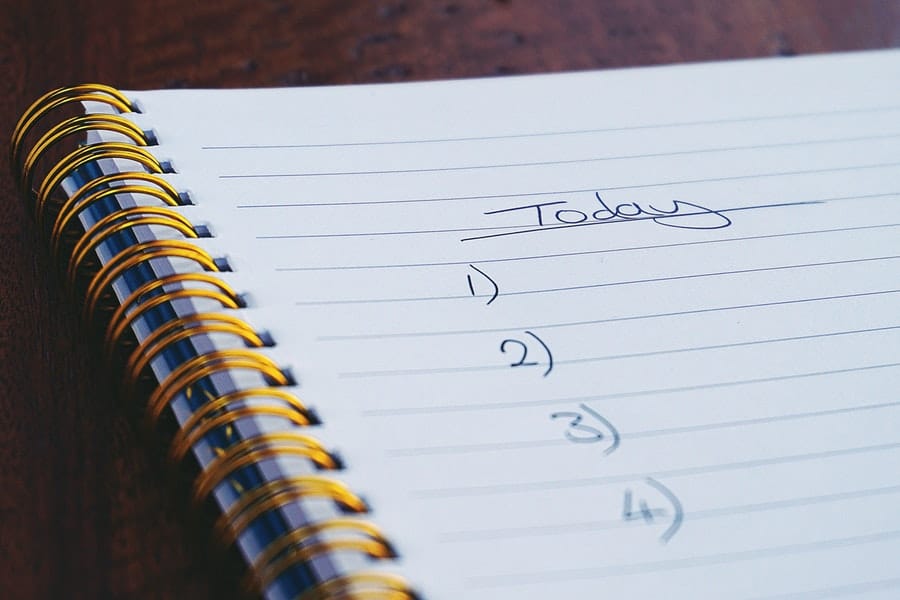At work, you need to organize the office. You need to organize everyone else’s lives. You need to track clients, vendors, colleagues, employees, and even your boss. So it’s no wonder that once you get home, the last thing you want to do is organize your own home.
Unfortunately, it’s necessary. If you let your home get away from you, it’s going to become an unpleasant place to be — and you’re not going to be able to relax when you’re there.
1. Create a List of Things to Do Before You Leave

Before you leave for work in the morning, create a list of things to do. Ordering your tasks can be the most mentally challenging task, because you have to think about everything that has to be done, and prioritize it. So do it while you’re still fresh in the morning.
This also means that you won’t come home and be overwhelmed by everything you need to do: you’ll already know what you have to do from the morning, rather than discovering it later at night.
2. When You Get Home: Take a Break!

Trying to force yourself to organize right off the bat is more likely to lead to procrastination. And during that procrastination, you’re going to feel bad about everything that you aren’t getting done.
Taking a break is important, too, and it should be prioritized. When you get home from a hard day of work, relax first. Sit down, watch a television show, have a snack, and recover from the day.
When you feel ready to tackle the house, the house is going to be there. That being said, make sure that you have a time limit on that break: give yourself an hour or two, and then you’ve got to get to work.
3. Be Realistic About Your Goals
Don’t write down “clean the house” and expect to get it done. Figure out what you can regularly do, and go from there. Do you find that you can regularly clean a single room? Then don’t stress yourself. If you try to do more, you’re just going to set yourself up for failure.
Instead, start with your baseline: clean a single room. And if you find that over time, you can clean that room more easily, start adding on additional tasks. But you need to be able to realistically and consistently accomplish your goals before you pile more on.
4. Start With Some Physical Activity

A lot of us sit all day at work, and that can make our minds sluggish, too. Start off with some physical activity; it can help you free your mind and feel productive. Take a walk around the block, take your dog out, or just do some stretches and yoga.
That’s great for your well-being and your mental state as well. Keeping your home organized is as much about your psychological health as it is about keeping a nice home.
5. Begin With the Easiest Tasks First
If there’s a task that will only take five minutes to complete, complete it before you move onto anything else. Don’t let small tasks linger if they can be done quickly, and begin with the easiest possible tasks on your list.
By starting with the easiest tasks, you can clear off more of your list, and feel more accomplished. When you come home drained and exhausted, getting your chores done tends to be more emotional and psychological than anything else.
If there are very hard tasks on your list, consider breaking them into smaller, easier tasks, that you can handle one-by-one.
6. Consider Whether You May Be Taking On Too Much
Work-related fatigue and burnout are very real. If you feel that you’re working so hard that you can’t take care of your home at the end of the day, there may be a very real work-life balance issue that you need to address.
That being said, most of us feel lazy at the end of the day, even if we didn’t have to work very hard at all. If it’s an issue of motivation, the tips above may be able to help you get into gear, and start forming positive housekeeping habits.
Getting organized is all about learning what works for you. To discover more great tips, check out the Get Organized Wizard.


How to stay organized when you have a 14 months toddler that makes a big mess after a long day of hard work?
It’s tough! But you would need to find ways to limit that mess.
If you Google ‘toddler mess’, there is lots of advice on how to both limit the mess and make cleanup a lot easier.